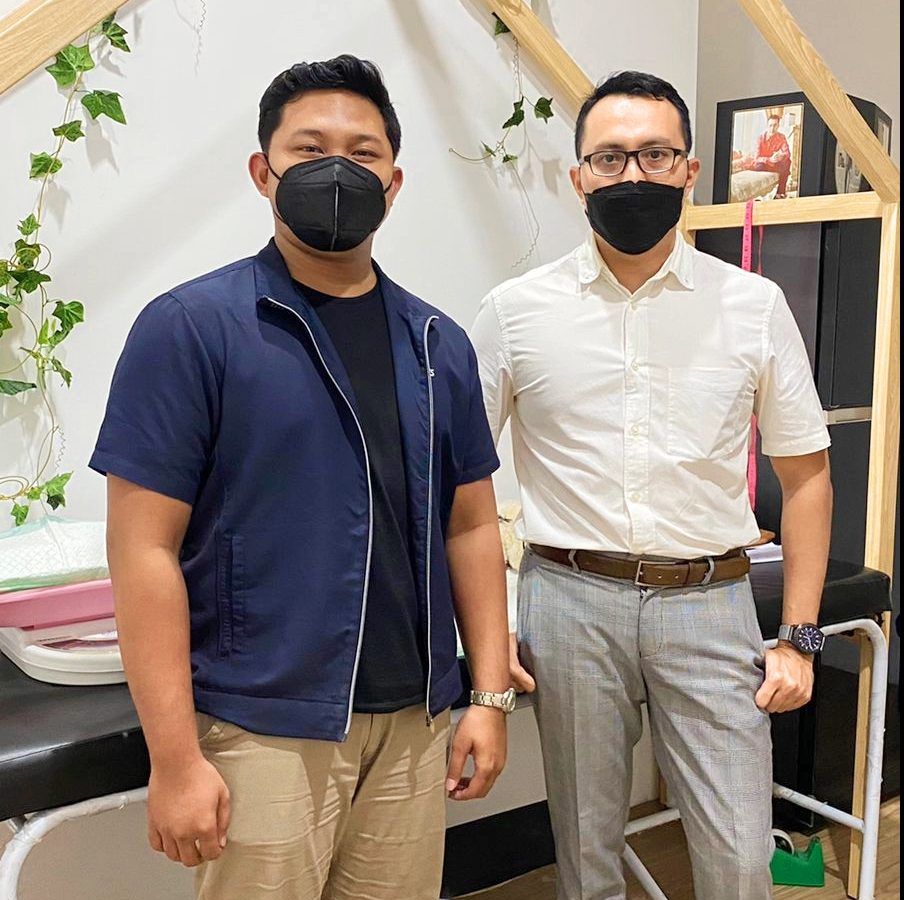UNAIR NEWS – Hyperbilirubinemia or jaundice is a problem that often occurs in newborns because they cannot filter bilirubin like adults. Bilirubin is a waste substance formed as a result of the red blood cell breakdown process.
Hyperbilirubinemia is the number 5 cause of death in Indonesia in newborns. It causes 60 to 80 percent of infants to be hospitalized in the first seven days of life. The baby will be given various treatments to treat hyperbilirubinemia in the hospital, including phototherapy. However, the Covid-19 pandemic has made parents worried about providing phototherapy treatment in hospitals. Furthermore, proper phototherapy with the right dose and considering the baby’s condition is an indicator of accelerating the baby’s recovery.
To answer the existing concerns, the academic community of Universitas Airlangga (UNAIR) collaborated to create an innovation called the Smart Phototherapy System Airlangga Bilirubin Nesting (AirBiliNest). It was developed by dr. Mahendra Tri Arif Sampurna., SpA(K)., PhD. from the Faculty of Medicine; Andi Hamim Zaidan, ST, MSi, PhD. from the Faculty of Science and Technology; Dr. Muhammad Nafik Ryandono, SE., MSi from the Faculty of Economics and Business; and Arya Satya Rajanagara, S.Ked from the Faculty of Medicine.
“This innovation is an innovation of a smart portable phototherapy system equipped with a calculator and adjusted dose, which allows effective phototherapy to be carried out at home,” said Arya as a team representative.
Uniquely, this innovation provides an environment that is similar to the uterus so that it can provide a sense of comfort to the baby, especially for babies born prematurely. This innovation also helps the baby strengthen the muscles with the help of the pads at the bottom of the device. Moreover, this innovation can also prevent pressure sores on babies and help babies make spontaneous movements such as holding hands, sucking fingers, or holding on to the bed. The material is equipped with optical fiber, which is hypoallergenic and soft, and the placement of the material is appropriate to minimize the emission of blue light during the day.
With the discovery of this innovation, the effectiveness of phototherapy in healing hyperbilirubinemia is expected. “It is expected to improve the implementation of phototherapy for hyperbilirubinemic babies in the current situation, the Covid-19 pandemic, which prevents parents from seeking treatment in hospitals,” explained Arya.
“Furthermore, this innovation can reduce the length of hospital stay and reduce the burden on the state,” he added.
This innovation, which is under the guidance of the UNAIR Start-up and Incubation Business Development Agency, managed to get funding of 250,000,000 by the Ministry of Education, Culture, Research, and Technology on December 10, 2021.
The current innovation is in the development stage and is expected to be ready for use in June 2022. “It’s currently under development. The future target is so that this innovation well-received and get a distribution permit,” closed Arya.
Author: Icha Nur Imami Puspita
Editor : Khefti Al Mawalia





